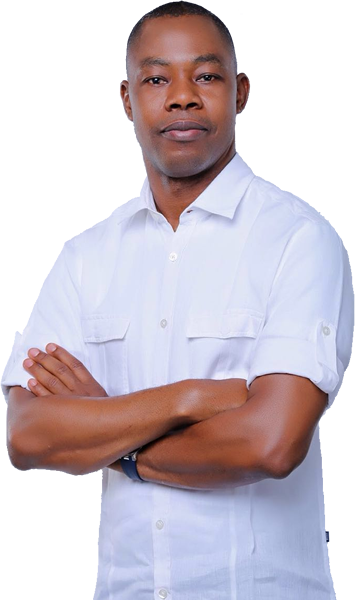Effective Communication: A leadership problem in Nigeria
I still remember staying awake all night watching the US elections on Television, waiting for Barrack Obama to make history as the first African American President of the USA. Beyond being a black man, Barrack Obama had captured my imagination by the way he communicates, the effectiveness of his communications, simplicity of his words, the flawless delivery and the potency of his messages. Obama seduced the entire world with his words. Before him Former President Bill Clinton had taken oratory to a height that was difficult to surpass, yet Barrack Obama was able to hold his own.
Communication is a means of socializing. It is always essentially between two or more persons either to maintain a conversation or to pass a message. For communication to be described as effective, it has to be well received by the recipient and understood in the way it is intended. If a communicator has to further explain or clarify what he says, then he has not communicated effectively. If his message is misunderstood, then he has failed to communicate. For instance, the recent statement by the Nigerian Minister of state for Petroleum Mr. Emmanuel Kachikwu, while addressing issues relating to fuel supplies, is an example of failed communication. The same Minister made a similar gaffe in his communications regarding the restructuring (or unbundling) of the Nigerian National Petroleum Corporation (NNPC).
For political leaders, effective communication is vital because it is synonymous with Charisma. It is difficult for a leader to exhibit charisma if he is unable to convey his vision to followers in a way that convinces them to be devoted to his cause. Effective communication conveys vision, knowledge, authority and compassion. It attempts to involve and empower the recipients in ways that ensure that the communication lingers for much longer than the conversation, thus winning hearts and minds.
So why are political leaders in Nigeria not aware of this cheap but effective way of mobilizing support? Why do they talk down on the citizens like slave owners to their slaves? Why do leaders who are given positions of responsibility divide rather than unite the citizenry through their utterances? Why hasn’t the political class seen the need to use effective communication as one of the yardstick for nomination of candidates?
In trying to find answers to these questions I came to certain conclusions. Firstly, most of our leaders are ill prepared for the offices they hold, hence they adopt a paternalistic attitude to cover their inadequacies. Secondly, most of them are secondary users of the English language, consequently, they have to translate their thoughts from the native tongue to English language, in the process so much is lost in translation like the English subtitles of Yoruba movies. Thirdly, the followers do not condemn the leaders even when they make communication gaffes, rather what they often give as feedback are words like ‘leader you gave it to them today’. I can imagine that after Mr. Kachikwu’s failed communication on the NNPC restructuring his close friends would have told him that the attendant labor strike was an act of sabotage induced by unionists who were sympathetic to the previous government.
So, how can we nurture a new political culture anchored by charismatic leaders and effective communicators? How can we stop our citizens from accepting mediocre communication from the political leadership? What should be the role of the media? How can we groom leaders across a broad spectrum of political leadership in Nigeria to recognize the need for this trait? Is it too late to ask our contemporary leaders to go back to finishing schools to learn about poise, carriage and communication? Is it possible to build a system that allows leaders to learn on the job through internal grooming processes like regular protocol and security briefings where etiquette is thought or through the often ill-used retreat sessions?
Our political leaders fail to appreciate the need for effective communication often out of a ‘Kabiyesi’ mentality that took its root from our culture where kings communicate with subjects through third parties. But even in the traditional context, the rulers speak eloquently and convey charisma on the rare occasions when they have to address the subjects. In actual fact rarely do traditional rulers emerge without some form of grooming period in which they had to learn how to communicate with the gods and the citizens. On the issue of language of communication, I often wondered who decreed that our leaders must communicate in English. I still remember stories about late Melford Okilo who was Governor of the old Rivers State between 1979 and 1993. Till this day people still remember some of the things he said while he was Governor. Most of the words still being remembered were communicated in ‘pidgin English’. On an international level, we still remember how Winston Churchill roused Britain to war in 1939 with his ‘an iron curtain has fallen against the face of Europe’ speech. Sadly in Nigeria, what we remember about our contemporary leaders are gaffes like ‘Stealing is not corruption’ and ‘we will not have petrol till May’.
As a nation we need to build into our political culture a leadership preparation program that ensures that elected and appointed leaders undergo some form of mass communication methodology, public speaking and etiquette grooming as they prepare to step into office. Our media too should begin to hold our leaders into account. We must stop the paternalistic mentality through a concerted effort to shame those who treat the citizens with disdain and sensitization of the citizenry to reject disrespectful leaders.
I am not in doubt that a number of the problems facing our nation today could be solved with effective communication. Our countrymen can be mobilized to confront the distrust among our different ethnic groups and religions, the lingering economic crisis, the perception of corruption and other challenges facing the nation through effective communication. Our leaders just have to be made to realize that the citizens are the bosses not the servants and that they must show us respect in words and deeds.
Ade Adeogun.



Communication-Clarity=Noise
We are still looking for thought leaders in Nigeria.
Innovative and informed opinion leaders. We can only get sustainable change when we have such people driving the economy and political roadmap in the country.